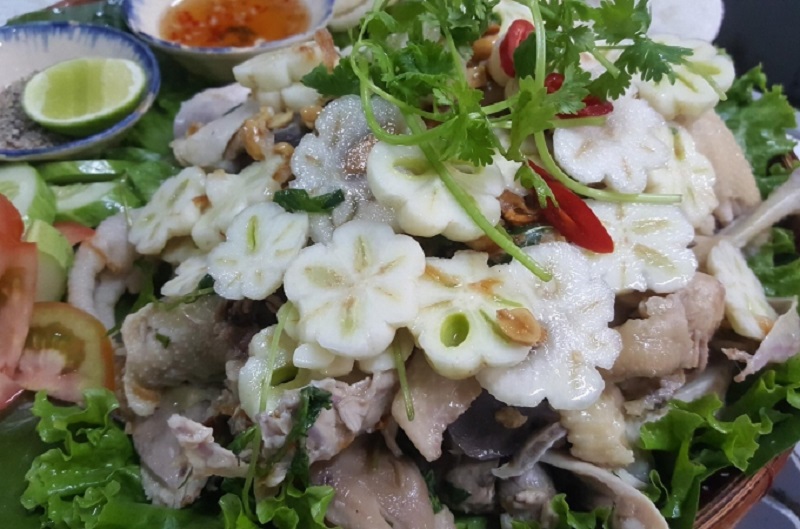
To make salad, people often choose mangosteen with the skin still green, but the inside is just ripe to keep the sweetness, crispness and moderate acidity.
Address : 3 An Thanh, Phu Tho Ward, Thu Dau Mot Town, Binh Duong.
Source: Collected internet.
Vietnam is an exciting country for tourism and investment. Bustling street life, delicious cuisine and majestic scenery all await you. A country constantly in motion, Vietnam always balances young urban culture with traditional values. In the city, ancient temples are just a turn away from modern shops. In the countryside, life still flows along the rivers and harvests. This contrast between old and new makes up a large part of Vietnam's appeal. Another reason to visit Vietnam is its natural beauty. The North has majestic mountains and beautiful limestone bays. The Central Coast Road leads to historical relics and romantic beaches. And in the South, the sleepless life of Ho Chi Minh City and the riverside villages in the Mekong Delta will make you want to linger forever.
The streets paint the lives of Vietnamese people. The streets here are not just for traveling. Streets and sidewalks are also places to shop, eat, meet for a cup of coffee, get a haircut or rest. Big cities are always full of life with the roar of millions of motorbikes, where you can feel a constant source of energy bubbling on every street.
The Vietnam National Gene Bank preserves 12,300 varieties of 115 species. The Vietnamese government spent US$497 million to maintain biodiversity in 2004 and has established 126 protected areas including 28 national parks. Vietnam has 2 world natural heritage sites: Ha Long Bay and Phong Nha - Ke Bang National Park and 6 biosphere reserves including Can Gio, Cat Tien, Cat Ba, Kien Giang, and River Delta mangrove forests. Hong and Tay Nghe An.
Vietnam's history began from 1 to 2 thousand years BC. Over many centuries with the Ly, Tran, Le, and Nguyen dynasties, from the mid-19th century, Vietnam became a French colony. After the August Revolution, the Democratic Republic of Vietnam was born. The Battle of Dien Bien Phu in 1954 marked the end of the French in the territory, but Vietnam was divided into two countries: the Democratic Republic of Vietnam in the North and the Republic of Vietnam in the South. After the events of April 30, 1975, Vietnam was unified and from July 2, 1976, officially named the Socialist Republic of Vietnam.